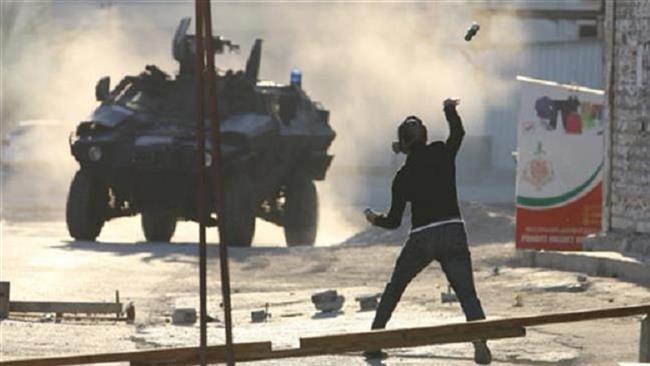
RNA - According to Bahrain's official news agency, BNA, King Hamad on Monday approved a constitutional amendment, which drops a clause limiting trials to members of the armed forces and other security branches, granting courts-martial the right to try all civilians accused of “damaging public interest” or carrying out acts of terrorism.
“The amendment becomes effective from the date of its publication in the Official Gazette,” BNA further said.
On February 21, Bahrain’s lower house of parliament, known as the Council of Representatives (Majlis an-Nuwab), voted in favor of the contentious bill, and on March 5, the upper house of the Bahraini parliament, known as the Consultative Council (Majlis al-Shura), also had unanimously passed the controversial amendment.
Human Rights Watch (HRW) has severely denounced the amendment, saying, “Bahraini courts – civilian as well as military – have been part of the machinery of repression that makes a mockery of fair trial standards when it comes to political dissent.”
The latest move by the Bahraini regime to further suppress political dissent is in clear violation of Article 10 of the Universal Declaration of Human Rights (UDHR), which maintains that “everyone is entitled in full equality to a fair and public hearing by an independent and impartial tribunal.”
In January, a royal decree also restored arrest and investigatory powers to the National Security Agency (NSA), Bahrain’s domestic spy service, a move that was strongly lambasted by the HRW.
The new law has also sparked concern for the fate of political activists already behind bars in the country’s prisons.
‘A disastrous move’
Shortly after the announcement of the king’s ratification of the bill on Monday, the Amnesty International, in a strongly-worded statement, also severely criticized the measure.
“This constitutional amendment is a disaster for the future of fair trials and justice in Bahrain. It is part of a broader pattern where the government uses the courts to crackdown on all forms of opposition at the expense of human rights,” said Lynn Maalouf, the head of research at the UK-based rights group’s regional office in Beirut.
Amnesty International slammed the “vaguely worded amendment, "saying it could be used by the Bahraini regime as a means to suppress “any critic,” including peaceful activists, deemed to be a threat to the country’s national security.
“Instead of moving to correct its shameful history of unfair trials and impunity for violations, authorities in Bahrain have decided to further undermine faith in the independence and fairness of the courts and of the justice system as a whole,” Maalouf further said.
Thousands of anti-regime protesters have held numerous demonstrations in Bahrain on an almost daily basis ever since a popular uprising began in the kingdom on February 14, 2011.
They are demanding that the Al Khalifah dynasty relinquish power and a just system representing all Bahrainis be established.
Manama has spared no effort to clamp down on dissent and rights activists. On March 14, 2011, troops from Saudi Arabia and the United Arab Emirates were deployed to Bahrain to assist the Manama government in its crackdown.
Scores of people have lost their lives and hundreds of others sustained injuries or got arrested as a result of the Al Khalifah regime’s crackdown on anti-regime activists.
The last time courts-martial operated in the island country was during King Hamad’s three-month state of emergency, beginning in March 2011, a month after the popular uprising was first staged.
“To avoid a lurch backwards to the dark days of martial law, the amendment should be repealed. And the Bahraini authorities must undertake a serious reform of their laws and of the justice system, in line with their obligations under international law,” Maalouf added in the statement.
847/940